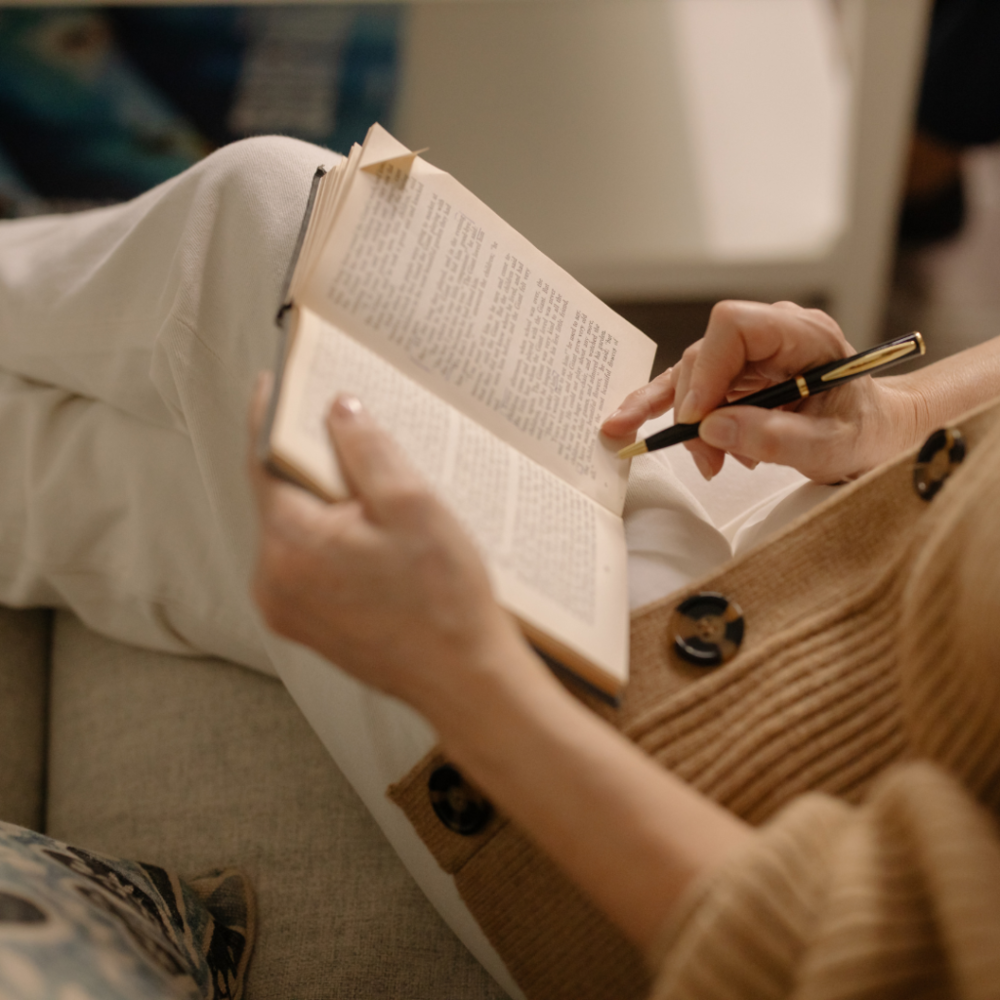Navigating Sleep Challenges During Cancer, Alopecia, and Life’s Stresses
Blog Topics
What Is The Festival Of Sleep
Festival of Sleep Day, celebrated on January 3rd every year, is a day dedicated to the joys of sleep and relaxation. It’s a day when people are encouraged to take a break from their busy lives and catch up on some much-needed rest, especially following the holiday period. If you are facing any health issues, cancer or alopecia and sleep challenges, relaxation and good quality sleep are essential to restore health and maintain well-being.
Keep reading to find some helpful information regarding Sleep Disorders and Cancer, Alopecia Stress and Sleep, Understanding Sleep Patterns, Empowering Sleep Strategies & Top Tips. You can also find some sleep promoting skincare from Jennifer Young.

The Link Between Cancer And Sleep
Sleep and cancer, it is very common for sleep to be disturbed following a cancer diagnosis. It may be worry and anxiety about your cancer, your hair loss, upcoming breast surgery or other types of treatment, about your future and that’s preventing you from falling asleep or waking you up in the middle of the night.
Sometimes it’s hard to return to sleep when the mind starts going as sleep and cancer can thug at the mind, with no one, no sound and no light to interrupt or distract your racing mind. Maura Roche, the founder of Roches, discovered journaling helped her night time meandering, and sometimes menacing thoughts, when she was going through treatment.
‘Writing helped me get the thoughts out of my head and onto the page, so I could return to sleep. My journaling revealed a lot of fears that I could and needed to unpack in the light of day using my Getting Well Again Tool Box. The dark of the night is not the best place to be alone with uncomfortable feelings and thoughts, and you can’t really call your friend at 3am!’.
Maura Roche
As you can see, sleep and cancer can have a major impact on your mind causing sleep disorders and cancer worries to never rest. Try some of our quality sleep techniques listed below to help you through.
Medication can also affect sleep as can menopause, naturally or medically induced, which may be happening for lots of you reading this. Those night sweats and the increased need to pee are no joke! Or you may have aches and pains & other side effects of treatment that are interrupting your sleep, this can be very frustrating. Don’t worry, there are things that you can do to support sleep.

Alopecia And Sleep Challenges
Alopecia and sleep, if you are new to hair loss and alopecia, you may be worrying about people noticing your thinning hair, or that you are now wearing a wig, topper or toupee. You may be upset, wondering if your hair loss is going to get worse, or if it will ever come back again. Alopecia, unlike chemo hair loss, is hugely stressful as it is completely unexpected and unpredictable.
Caught completely unaware many people just do not know where to go or who to turn to. It’s a huge shock and change to our image, our confidence and our lifestyle and these thoughts and feelings can swirl around at night affecting our sleep and taking away our peace of mind. Use some of our sleep strategies below to try to relieve some of your worries, in the hope of leading to improved alopecia stress and sleep.
Understanding Our Sleep Patterns
Perhaps, it’s simply just life and the daily stresses of finance, work, family and relationships that keep us from sound quality sleep.
Cancer and alopecia sleep challenges, or whatever your reasons, be aware that sleep health and wellness go hand-in-hand. If your sleep is not as good as you would like, you are not alone. Studies reveal that insomnia is experienced by 10%–30% of the population, with some studies citing prevalence as high as 50%–60% in certain populations, notably those medical and health issues.
Most research suggests we need 7-9 hours of sleep. Getting enough sleep isn’t only about total hours of sleep. It’s also important to get good-quality sleep on a regular schedule so you feel rested when you wake up. The most common cause of sleep problems is poor sleeping habits, which thankfully is something we can change.
Being handed a diagnosis of Cancer or Alopecia can leave us feeling a bit powerless, but the good news is, there are many things you can do to improve your outcomes and your health, including your sleep. So let’s take back some power and control our sleep. Go easy though. Remember, getting into a good sleep pattern may take weeks. I am a big believer in making one small change at a time and building on that. Here are some suggestions and relaxation techniques for better sleep.Cancer, alopecia
Empowering Sleep Strategies & Top Tips:
- Develop a regular sleep routine: Our bodies love routine. To help your body clock get into a rhythm, try to get up at the same time and go to bed at the same time as much as possible. This can really help with cancer and alopecia sleep challenges. Working back from when you need to rise and factoring in 8 hours is a good way to define your bedtime. Mine is 11!
- Get Natural Morning Light: Getting outside during the day to get light exposure, preferably early in the day, also helps us sleep better at night. The light stimulates chemicals that let the body know its daytime, awake time. 20 minutes of sunlight also helps our body to create Vitamin D, something we need and is important for cancer prevention.
- Exercise: as we now know is good for absolutely everything, including sleep. If you can combine natural morning light with a walk or run, you are off to a great start and by default end to your day. Don’t do vigorous exercise before bed though, as it wakes us up.
- Cut Down: Try to avoid or cut down on things that keep you awake and affect sleep quality. Set a cut-off point for stimulants such as caffeine, nicotine, and alcohol as stimulants disrupt sleep and are best kept to the earlier part of the day.
- Nicotine: Smoking is a common habit, but its impact on sleep is often underestimated. Nicotine is a stimulant, meaning it can interfere with your ability to fall asleep and stay asleep. People who smoke tend to take longer to drift into slumber, wake up more frequently during the night, and experience more disrupted sleep patterns. I understand how challenging it can be to quit smoking. I faced the same struggle following my cancer diagnosis in 1998. If you’re feeling motivated to quit, the HSE offers an excellent free resource to help you kick the habit. Additionally, the Irish Cancer Society provides valuable support through their helpline at 1800 201 203.
- Alcohol: While a nightcap may seem like a relaxing way to unwind, it’s essential to understand its impact on sleep. While alcohol may help you fall asleep initially, it disrupts the quality of your sleep and can lead to frequent awakenings during the night. Now, I’m not suggesting morning drinking, but if you’re experiencing disrupted sleep, it’s wise to avoid alcohol in the evenings. As an alternative, why not consider joining me for Dry January? If you’re seeking more support, websites like OneYearNoBeer can be valuable resource.
- Caffeine can make it difficult to fall asleep and it can prevent deep sleep. Drinks with caffeine in them include tea, coffee, energy drinks or soft drinks. Foods can also contain caffeine, such as chocolate and some protein bars. If you have trouble sleeping, avoid caffeine 4 to 6 hours before bed and replace it with calming herbal teas or decaf. Some herbal teas promote sleep like camomile and valerian root.
- Eating: Eating large meals before bed can make it harder to stay asleep. It also prevents your body from doing vital repairs and your brain from filing and processing, as it busy digesting food. Try to have your last meal 3-4 hours before you go to bed. This is also great for weight loss (as is sleep) and for overall brain and immune function. And let’s face it we need our brain and our immune system to be working well, and I’d choose sleep over the gym to help with weight loss!
- Screen Time: We are all hooked on devices these days whether it’s the phone, the television or the tablet! Unfortunately, this blue light tricks our brain into thinking it’s still daytime and prevents our body from producing melatonin, the hormone that puts us to sleep. It’s suggested no devices 1-3 hours before sleep.
- Create a sleep-friendly bedroom environment: Try to have a relaxing space for sleeping. Your sleeping environment can have a huge impact on your sleep. A cool room and warm clothing are better than a hot room for sleeping. Natural fabrics also keep you cool, so be aware of bedclothes and nightwear. If you have lost your hair, the bamboo sleep caps are your ideal sleep companion. Keep the room as dark as possible to let the body know its night time. Use an eye mask if necessary and earplugs if you need to block out noise, like snoring spouses!
- Sleep Routine: Develop a wind-down sleep ritual an hour before bedtime. Just like light signals to the body that it is awake time, darkness signals to the body that it is time for sleep. If we put away the screens and start to dim the lights, our body produces melatonin which supports sleep. You can buy melatonin supplements in the pharmacy or get them for free by giving your brain/body some darkness. Set a time about an hour before you want to go to sleep and start the unwinding process. relax, slow down, turn off the devices, dim the lights and you might like to add a few of the following
- Relaxation: Take a relaxing bath or shower and take the time after to moisturise your skin and your scalp with natural skincare. Natural skincare such as Jennifer Young’s products are full of nutrients and some have essential oils which help the mind and body to relax.
- Yoga: Do some gentle stretches to relax your muscles, such as gentle yoga. Check out Collette from Harte & Soul Wellness, and Jessica Kennedy from Soul Work Holistic.
- Listen: listen to relaxing sounds, for example, guided relaxation or calming music. This option is great as we can often lack motivation when daily stress, cancer and alopecia effect our lives, listening is easy and relaxing, making it perfect to aid your cancer or alopecia sleep challenges. There are lots of resources on Spotify, Headspace, Calm & I particularly like this Soothing Relaxation from YouTube. You could also try doing some deep breathing exercises or meditation to this relaxing music.
- Nourish your senses: To finish off, spritz some calming Lavender Spray on your pillow which will send you off into a deep dreamy slumber – Jennifer Young Products.
Embracing Restful Sleep
As we embrace the tranquillity of the Festival of Sleep Day, let’s remember the profound impact that restful sleep has on our health and well-being, especially during challenging times. Whether you’re navigating the journey of cancer, coping with alopecia, or simply seeking a sanctuary from the hustle of daily life, prioritising sleep is a step towards healing and balance. At Roches, we’re not just committed to providing you with supportive products and treatments; we’re here to journey with you towards better sleep, better health, and a brighter tomorrow. So tonight, as you settle in, allow yourself that much-deserved rest, and wake up to a new day filled with possibilities and renewed energy.
Sweet dreams from Anne and all of us at Roches.








